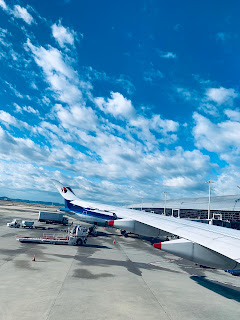Don't be afraid. Mammography is a fast procedure (about 20 minutes), and discomfort is minimal for most women. The procedure is safe: there's only a very tiny amount of radiation exposure from a mammogram. To relieve the anxiety of waiting for results, go to a center that will give you results before you leave.
Get the best quality you can. If you have dense breasts or are under age 50, try to get a digital mammogram. A digital mammogram is recorded onto a computer so that doctors can enlarge certain sections to look at them more closely.
Other tips:
Bring your past mammogram films/results with you. If you’ve been to the same facility before, make sure your past results are available to whoever is reading the study.
Once you find a facility you have confidence in, try to go there every year, so that your mammograms can be compared from year to year.
Have more than one radiologist read your study, if your insurance covers this.
Ask if your center has CAD — computer-aided detection — a tool that assists the radiologist in finding any areas of concern that need further attention.
If you’ve been referred for a mammogram because of a suspicious lump or a finding on another test, make sure your doctor includes a detailed note as to why the mammogram has been ordered. For example, if the doctor felt a lump in the upper portion of the breast, closer to the underarm, the note might say, “palpable mass in the upper outer quadrant, left breast, rule out abnormality.” Be prepared to talk about previous unusual findings or symptoms with the technologist who performs the mammogram.
Work with your doctor to compare your mammogram results with any other tests you may have had done, such as ultrasound or MRI.
On the day of the exam, wear a skirt or pants, rather than a dress, since you’ll need to remove your top for the test. Don’t wear deodorant or antiperspirant, since these can show up on the film and interfere with the test results.
Avoid scheduling your mammogram at a time when your breasts are swollen or tender, such as right before your period.
Discuss your family history of breast and other cancers — from both your mother's AND father’s side — with your doctor.
If you don’t receive any results within 30 days, call your doctor or testing facility to ask for the results.
Mammography is our most powerful breast cancer detection tool. However, mammograms can still miss 20% of breast cancers that are simply not visible using this technique. Other important tools — such as breast self-exam, clinical breast examination, and possibly ultrasound or MRI — can and should be used as complementary tools, but there are no substitutes or replacements for a mammogram.
An unusual result requiring further testing does not always mean you have breast cancer. According to the American Cancer Society, about 10% of women (1 in 10) who have a mammogram will require more tests.
Only 8-10% of these women will need a biopsy, and about 80% of these biopsies will turn out not to be cancer. It’s normal to worry if you get called back for more testing, but try not to assume the worst until you have more information.
When to get a mammogram
There's a lot of confusion out there about when and how often to get a mammogram. For now, the recommendation is that women get a mammogram once a year, beginning at age 40. If you're at high risk for breast cancer, with a strong family history of breast or ovarian cancer, or have had radiation treatment to the chest in the past, it's recommended that you start having annual mammograms at a younger age (often beginning around age 30). This, however, is something that you should discuss with your health care provider.
Source : http://www.breastcancer.org/





No comments:
Post a Comment